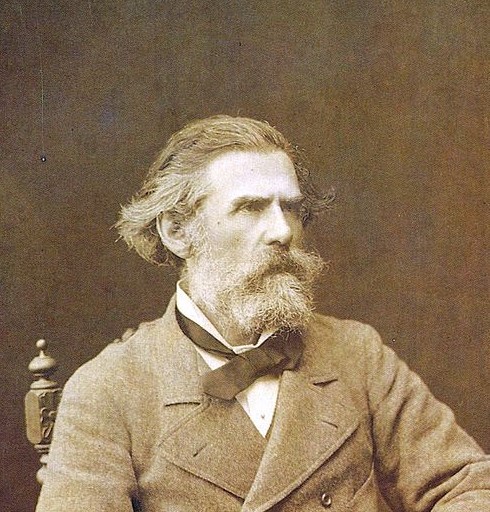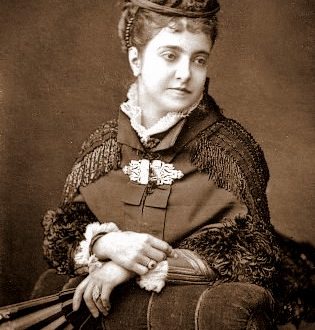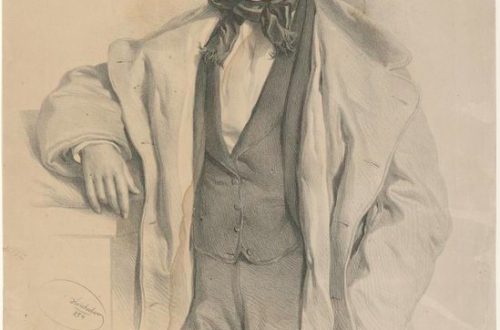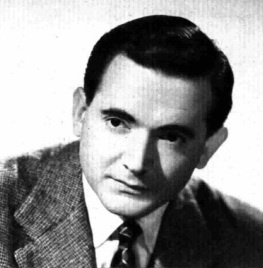
Alexey Petrovich Ivanov |
Alexei Ivanov
Alexei Petrovich was born in 1904 into the family of a parochial school teacher. When the boy grew up, he was assigned to this school, which was located in the village of Chizhovo, Tver province. Singing was taught at school, which was also carried away by the Ivanov family. Little Aleksey listened with bated breath as his father and sisters sang folk songs. Soon joined the home choir and his voice. Since then, Alexey has not stopped singing.
In the real school of Tver, where Aleksey Petrovich entered, amateur performances were staged by students. The first role played by Alexei was the role of Ant in a musical staging of Krylov’s fable “Dragonfly and Ant”. After graduating from college, Alexei Petrovich enters the physics and mathematics department of the Tver Pedagogical Institute. Since 1926, he has been working as a teacher of physics, mathematics and mechanics at the FZU school of the Tver Carriage Works. During this period, serious singing lessons begin. In 1928, Ivanov entered the Leningrad Conservatory, without interrupting the teaching of the exact sciences already in the schools and technical schools of Leningrad.
The opera studio at the conservatory, where he studied under the guidance of Ivan Vasilievich Ershov, gave the singer a lot in acquiring vocal and stage skills. With great warmth, Alexei Petrovich recalled his first role, performed on the stage of the studio – the part of Scarpia in G. Puccini’s opera Tosca. In 1948, with her, the already recognized singer, soloist of the Bolshoi Theater, performed at the Prague Spring Festival at the Prague Opera House in an ensemble with Dino Bodesti and Yarmila Pekhova. Under Yershov’s guidance, Ivanov also prepared the part of Gryaznoy (“The Tsar’s Bride”).
A significant role in the formation of the stage talent of the artist was played by the years of his stay at the Leningrad Academic Maly Opera Theater, on the stage of which Alexei Petrovich began performing in 1932. Already at that time, the close attention of the young singer was attracted by the creative principles of Stanislavsky, his reforms in the field of musical theater, his desire to overcome opera clichés, to which the interests of the actor-singer were often sacrificed, in connection with which the opera performance lost its integrity and fell apart into a number of separate, more or less successfully sung parties. While working at MALEGOT, Ivanov met with K. S. Stanislavsky and had a long conversation with him, during which he received the most valuable lessons in the embodiment of opera images.
In 1936-38, the artist performed on the stage of the Saratov and Gorky Opera Houses. In Saratov, he performed with great success as the Demon in the opera of the same name by A. Rubinstein. Already later, performing the part of the Demon in the branch of the Bolshoi Theater, the singer significantly deepened the stage characterization of Lermontov’s hero, finding expressive touches that set off his indomitable rebellious spirit. At the same time, the singer gave the Demon the features of humanity, drawing him not so much as a mystical creature, but as a strong personality who did not want to put up with the surrounding injustice.
On the stage of the branch of the Bolshoi Theater, Alexei Petrovich made his debut in the role of Rigoletto in 1938. If on Western European stages the main character is usually the Duke, whose part is included in the repertoire of eminent tenors, then in the production of the Bolshoi that was then staged, the fate of the jester Rigoletto acquired leading significance. Over the years of his work at the Bolshoi Theater, Ivanov sang almost the entire baritone repertoire, and his work on the role of Bes in the opera Cherevichki was especially noted by critics and the audience. In this role, Alexey Petrovich showed off the flexibility of a strong and sonorous voice, the completeness of acting. His voice is very clear in the spell scene. The sense of humor inherent in the artist helped to remove the fantasy from the image of Bes – Ivanov painted him as a comically fussy, fidgety creature, trying in vain to get in the way of a person. In 1947, with great success, Ivanov performed the part of Peter in a new production and edition of A. Serov’s opera The Enemy Force. He faced a very difficult task, since in the new edition of the work, Peter became the central image instead of the blacksmith Eremka. Here is how the critics of those years wrote: “Aleksey Ivanov coped with this task brilliantly, shifting the center of gravity of the performance to the deeply truthful vocal and stage image he created, expressively shading the impulses of the restless Peter, the abrupt transitions from indomitable fun to gloomy depression. It should be noted that the artist in this role approached the original source of the opera – Ostrovsky’s drama “Do not live as you want” and correctly understood its idea, its ethical orientation.
Hot temperament and stage talent always helped Alexei Petrovich to maintain the tension of the dramatic action, to achieve the integrity of operatic images. The singer’s image of Mazepa in the opera by P. I. Tchaikovsky turned out very well. The artist boldly revealed the contradictions between the nobility of the outward appearance of the old hetman and his vile essence of a traitor who is alien to good human feelings and motives. Cold calculation guides all the thoughts and actions of Mazepa performed by Ivanov. So Mazepa gave the order to execute Kochubey, Maria’s father. And, having committed this meanness, he tenderly embraces Mary, who blindly trusted him, and insinuatingly asks which of the two – him or her father – she would sacrifice if one of the two of them should die. Alexei Ivanov conducted this scene with amazing psychological expressiveness, which grows even more in the last picture, when Mazepa sees the collapse of all his plans.
Alexey Petrovich Ivanov traveled almost the entire Soviet Union with tours, traveled abroad, participated in various opera productions of foreign opera houses. In 1945, after performing in Vienna, the artist received a laurel wreath with an inscription: “To a great artist from the grateful liberated city of Vienna.” The singer always remembered M. I. Glinka’s precept about “a freely flowing sound, warmly colored and always meaningful.” These words involuntarily come to mind when you hear Alexei Petrovich’s singing, when you admire his excellent diction, bringing every word to the listener. Ivanov is the author of a number of books, among which a special place is occupied by his memoirs, published in a book called “The Life of an Artist”.
The main discography of A.P. Ivanov:
- Opera “Carmen” by G. Bizet, part of Escamillo, choir and orchestra of the Bolshoi Theater conducted by V. Nebolsin, recorded in 1953, partners – V. Borisenko, G. Nelepp, E. Shumskaya and others. (Currently released on CD in our country and abroad)
- Opera “Pagliacci” by R. Leoncavallo, part of Tonio, choir and orchestra of the Bolshoi Theater conducted by V. Nebolsin, “live” recording of 1959, partners – M. Del Monaco, L. Maslennikova, N. Timchenko, E. Belov. (Last time it was released on phonograph records in 1983 at the Melodiya company)
- Opera “Boris Godunov” by M. Mussorgsky, part of Andrei Shchelkalov, choir and orchestra of the Bolshoi Theater conducted by A. Melik-Pashaev, recorded in 1962, partners – I. Petrov, G. Shulpin, V. Ivanovsky, M. Reshetin, I Arkhipova and others. (Released on CD overseas)
- Opera “Khovanshchina” by M. Mussorgsky, part of Shaklovity, choir and orchestra of the Bolshoi Theater conducted by V. Nebolsin, recorded in 1951, partners – M. Reizen, M. Maksakov, A. Krivchenya, G. Bolshakov, N. Khanaev and others . (Released on CD overseas)
- Opera “Dubrovsky” by E. Napravnik, part of Troekurov, choir and orchestra of the Bolshoi Theater conducted by V. Nebolsin, recorded in 1948, partners – I. Kozlovsky, N. Chubenko, E. Verbitskaya, E. Ivanov, N. Pokrovskaya and others . (Last release on gramophone records by the Melodiya company in the 70s of the XX century)
- Opera “The Tale of Tsar Saltan” by N. Rimsky-Korsakov, part of the messenger, choir and orchestra of the Bolshoi Theater conducted by V. Nebolsin, recorded in 1958, partners – I. Petrov, E. Smolenskaya, V. Ivanovsky, G. Oleinichenko, L. Nikitina, E. Shumilova, P. Chekin and others. (Released on CD overseas)
- Opera “The Tsar’s Bride” by N. Rimsky-Korsakov, part of Gryaznoy, choir and orchestra of the Bolshoi Theater, “live” recording of 1958, partners – E. Shumskaya, I. Arkhipova. (The recording is stored in the radio funds, it was not released on CD)
- Opera “The Demon” by A. Rubinstein, part of the Demon, choir and orchestra of the Bolshoi Theater conducted by A. Melik-Pashaev, recorded in 1950, partners – T. Talakhadze, I. Kozlovsky, E. Gribova, V. Gavryushov and others. (Released on CD in our country and abroad)
- Opera “Mazepa” by P. Tchaikovsky, Mazepa’s part, choir and orchestra of the Bolshoi Theater conducted by V. Nebolsin, recorded in 1948, partners – I. Petrov, V. Davydova, N. Pokrovskaya, G. Bolshakov and others. (Released on CD overseas)
- Opera “The Queen of Spades” by P. Tchaikovsky, part of Tomsky, choir and orchestra of the Bolshoi Theater conducted by A. Melik-Pashaev, recorded in 1948, partners – G. Nelepp, E. Smolenskaya, P. Lisitsian, E. Verbitskaya, V. Borisenko and others. (Released on CD in Russia and abroad)
- Opera “Cherevichki” by P. Tchaikovsky, part of Bes, choir and orchestra of the Bolshoi Theater conducted by A. Melik-Pashaev, recorded in 1948, partners – E. Kruglikova, M. Mikhailov, G. Nelepp, E. Antonova, F. Godovkin and others. (Released on CD overseas)
- Opera “The Decembrists” by Y. Shaporin, part of Ryleev, choir and orchestra of the Bolshoi Theater conducted by A. Melik-Pashaev, recorded in 1955, partners – A. Pirogov, N. Pokrovskaya, G. Nelepp, E. Verbitskaya, I. Petrov , A. Ognivtsev and others. (The last time it was released on gramophone records “Melodiya” in the late 60s of the XX century) Among the videos with the participation of A. P. Ivanova’s famous film-opera “Cherevychki”, the shooting of the end of the 40s with the participation of G. Bolshakova, M. Mikhailova and others.





